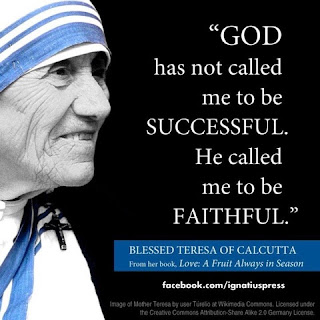Aug. 26, 2015 Wednesday: 21st Week in Ordinary Time
Aug. 26, 2015 Wednesday: 21st Week in Ordinary Time
‘Alas for you, scribes and Pharisees! For you are like whitewashed tombs, which look beautiful on the outside, but inside are full of the bones of dead men, and of all corruption. So you, too, outwardly look righteous to men, but inwardly you are full of hypocrisy and lawlessness.’ (Matt 23:27)
It is not so difficult to see that, in our particular world, we all have a strong desire to accomplish something. When we start being too impressed by the results of our work, we slowly come to the erroneous conviction that life is one large scoreboard where someone is listing the points to measure our worth. And before we are fully aware it, we have sold our soul to the many gradegivers. That means we are not only in the world, but also of the world. Then we become what the world makes us. We are intelligent because someone gives us a high grade. We are helpful because someone says thanks. We are likable because someone likes us. And we are important because someone considers us indispensable. In short, we are worthwhile because we have successes.
When we cling to the results of our actions as our only way of self-identification, then we become possessive and defensive and tend to look at our fellow human beings more as enemies to be kept at a distance than as friends with whom we share the gifts of life.
In solitude we can slowly unmask the illusion of our possessiveness and discover in the center of our own self that we are not what we can conquer, but what is given to us. In solitude we can listen to the voice of him who spoke to us before we could speak a word, who healed us before we could make any gesture to help, and who loved us long before we could give love to anyone. It is in this solitude that we discover that being is more important than having, and that we are worth more than the result of our efforts. In solitude we discover that our life is not a possession to be defended, but a gift to be shared.
In solitude we become aware that our worth is not the same as our usefulness.
- Henri Nouwen
‘Alas for you, scribes and Pharisees! For you are like whitewashed tombs, which look beautiful on the outside, but inside are full of the bones of dead men, and of all corruption. So you, too, outwardly look righteous to men, but inwardly you are full of hypocrisy and lawlessness.’ (Matt 23:27)
It is not so difficult to see that, in our particular world, we all have a strong desire to accomplish something. When we start being too impressed by the results of our work, we slowly come to the erroneous conviction that life is one large scoreboard where someone is listing the points to measure our worth. And before we are fully aware it, we have sold our soul to the many gradegivers. That means we are not only in the world, but also of the world. Then we become what the world makes us. We are intelligent because someone gives us a high grade. We are helpful because someone says thanks. We are likable because someone likes us. And we are important because someone considers us indispensable. In short, we are worthwhile because we have successes.
When we cling to the results of our actions as our only way of self-identification, then we become possessive and defensive and tend to look at our fellow human beings more as enemies to be kept at a distance than as friends with whom we share the gifts of life.
In solitude we can slowly unmask the illusion of our possessiveness and discover in the center of our own self that we are not what we can conquer, but what is given to us. In solitude we can listen to the voice of him who spoke to us before we could speak a word, who healed us before we could make any gesture to help, and who loved us long before we could give love to anyone. It is in this solitude that we discover that being is more important than having, and that we are worth more than the result of our efforts. In solitude we discover that our life is not a possession to be defended, but a gift to be shared.
In solitude we become aware that our worth is not the same as our usefulness.
- Henri Nouwen


